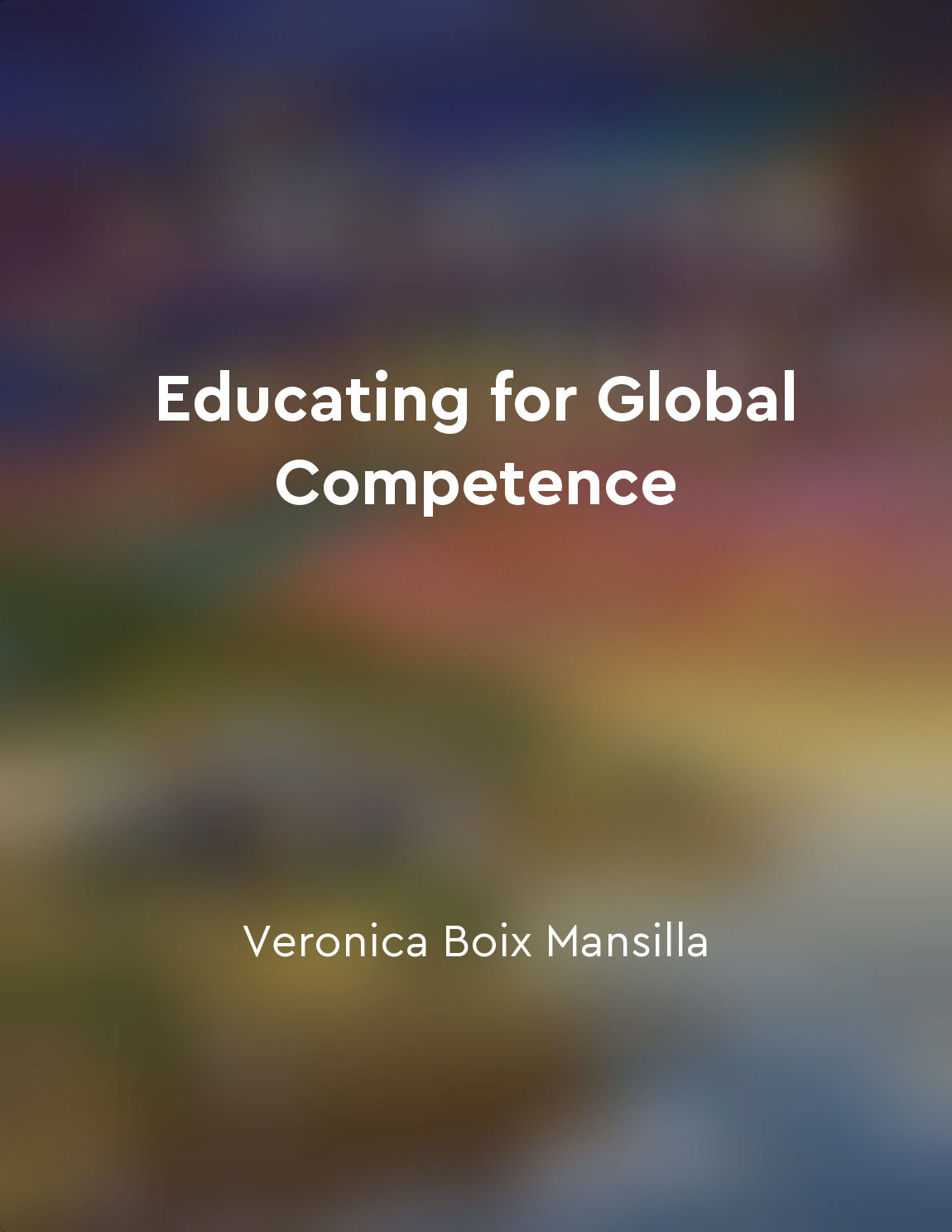Educators should help students develop a sense of global citizenship from "summary" of Educating for Global Competence by Veronica Boix Mansilla,Anthony Wells Jackson
One of the key goals in education is to prepare students to thrive in an increasingly interconnected world. This involves going beyond traditional academic subjects and equipping students with the skills, knowledge, and attitudes necessary to engage meaningfully with global issues. Educators play a crucial role in guiding students towards developing a sense of global citizenship, which encompasses an awareness of global interconnectedness, a sense of solidarity with people worldwide, and a commitment to taking action to address global challenges. Helping students develop a sense of global citizenship involves exposing them to diverse perspectives, cultures, and worldviews. This can be done through incorporating global issues into the curriculum, inviting guest speakers from different parts of the world, and facilitating opportunities for cross-cultural exchanges. By exposing students to a variety of perspectives, educators can help them appreciate the complexity of global challenges and develop empathy towards people from different backgrounds. In addition to exposing students to diverse perspectives, educators can also help them develop the skills necessary to navigate a globalized world. This includes developing critical thinking skills to analyze and evaluate information from different sources, communication skills to collaborate with people from diverse backgrounds, and problem-solving skills to address complex global issues. By equipping students with these skills, educators can empower them to become informed and active global citizens. Furthermore, educators can foster a sense of global citizenship by encouraging students to take action on global issues that are important to them. This can involve participating in service projects, advocating for policy changes, or engaging in cross-cultural dialogue. By providing students with opportunities to make a difference on a global scale, educators can help them see the impact of their actions and develop a sense of agency in addressing global challenges.- Educators play a critical role in helping students develop a sense of global citizenship. By exposing students to diverse perspectives, equipping them with the necessary skills, and encouraging them to take action, educators can empower students to become informed, empathetic, and active global citizens who are prepared to contribute positively to the world.


